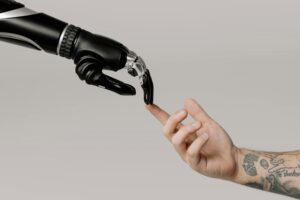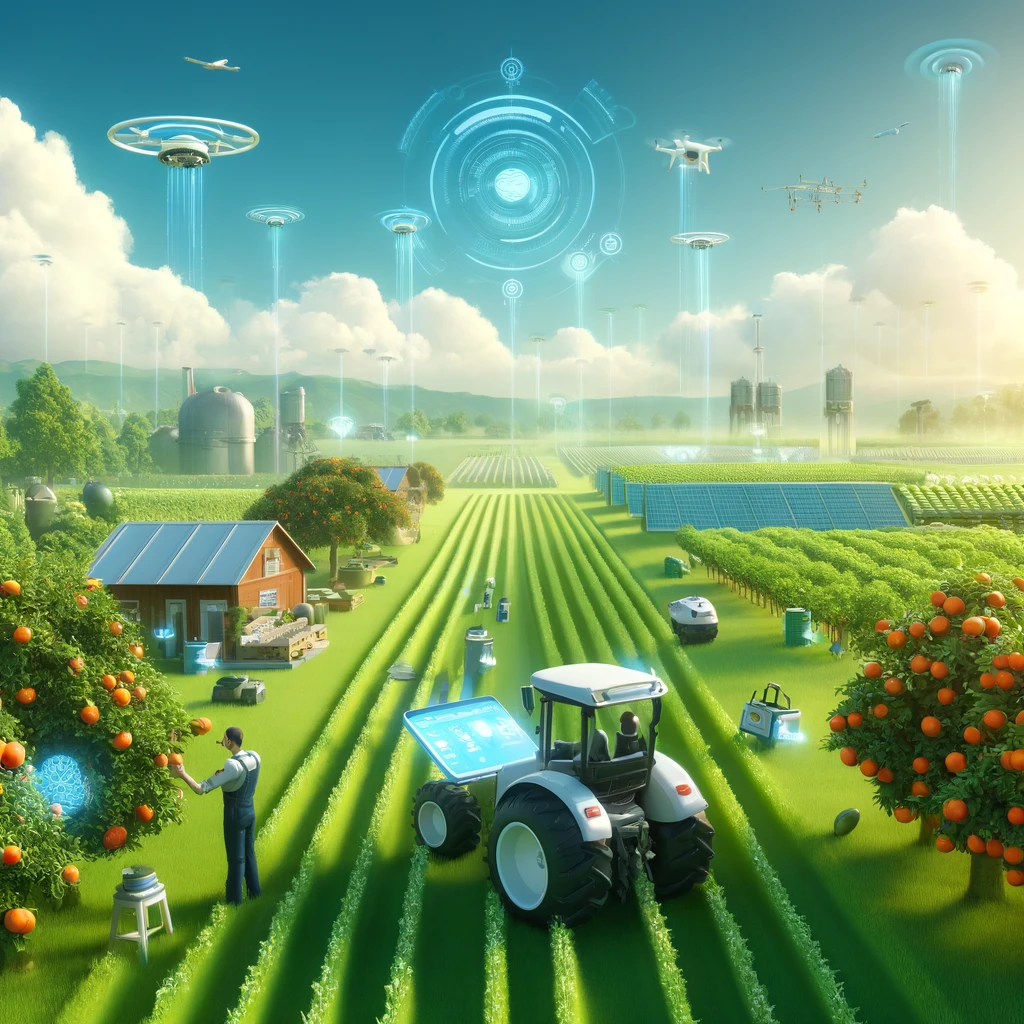How 2024 Will See AI Transform Small-Scale Farming

Artificial intelligence (AI) is transforming agriculture by enabling small-scale farmers to overcome long-standing hurdles. Large industrial farms were formerly the only ones with access to this technology, but small-scale farmers can now adopt cutting-edge practices because to AI’s increasing cost and versatility. AI is altering the agricultural landscape, paving the door for more efficient, sustainable, and profitable farming, ranging from precision farming to animal management. YouTube is filled with video news & content on How 2024 Will See AI Transform Small-Scale Farming. But if you liked our content & news you can visit our site: Novel Stuff
AI and Precision Farming: Optimizing Crops

AI’s influence on agriculture depends on precision farming, which empowers farmers to make resource-efficient decisions. Systems driven by AI analyze data collected by sensors, drones, and satellites, turning unprocessed data into insightful knowledge.
AI systems might assess the health of soil by looking at its structure and nutritional composition, for instance. With this information, farmers can decide which crops are ideal for their farms and when and where to grow them. AI also keeps an eye on agricultural conditions, identifying diseases, pests, and nutritional deficiencies early. This proactive approach guarantees timely intervention, saving crops and minimizing losses.
AI-Powered Machinery: Making Advanced Tools Accessible

Small-scale farming is being transformed by low-cost AI-powered technology that automates labor-intensive tasks. For example, small farms are the intended market for small robotic harvesters. These gadgets can efficiently pick fruits and vegetables, reducing labor costs and time.
In a similar spirit, small-scale farmers are increasingly utilizing low-cost autonomous tractors. These tractors use artificial intelligence (AI) to precisely plow fields, plant seeds, and perform other essential tasks. Farmers who use such equipment can focus on other aspects of their business while the machines handle the boring tasks.
Transforming Livestock Management with AI
AI is not limited to crops; it is also revolutionizing the management of livestock. Farmers with small herds consider wearable AI devices to be groundbreaking. These gadgets keep track of animals’ actions and conduct, providing advance warnings of sickness or suffering. By identifying health issues early on, farmers can implement preventive measures to ensure their livestock remains healthy and productive.
AI also excels in the area of feed optimization. By analyzing trends in livestock growth and their nutritional needs, AI tools propose alterations to feeding schedules and compositions. This reduces waste and ensures that animals receive the nutrients essential for proper growth.
Overcoming Challenges in AI Adoption
Despite the great potential of AI, there are difficulties involved in its use within small-scale farming. A major obstacle is the limited availability of internet in rural regions, which constrains the real-time data flow that many AI tools depend on. Nevertheless, advancements such as offline-capable applications and solutions for locally stored data are aiding in closing this divide.
Another obstacle is the initial expense associated with AI technologies. Even when there are budget-friendly choices, the upfront cost can be intimidating for small-scale farmers who have limited financial resources. To tackle this problem, governments, NGOs, and private entities are intervening by providing subsidies, grants, and training initiatives. The goal of these initiatives is to make AI more within reach for farmers and to encourage them to adopt these developments.
The Future of AI Transform Small-Scale Farming
With the use of AI, small-scale farming appears to have a more promising future than before. Technology promises to close the gap between conventional farming practices and contemporary solutions as it develops further and becomes more accessible. Farmers will have access to equipment that will guarantee sustainability over the long run in addition to increasing efficiency.
Furthermore, new developments in AI are probably going to solve current issues, which will make it much simpler for farmers to use these technologies. Small-scale farmers will be able to prosper in a fast evolving agricultural landscape with improved connectivity, smarter instruments, and continuous education.
FAQs
How might AI help small-scale farmers become more efficient?
AI evaluates weather, crop, and soil data to provide farmers with accurate recommendations that increase yields, cut waste, and conserve resources.
Which AI tools are accessible and reasonably priced for small farmers?
Wearable livestock monitoring devices, AI-powered irrigation systems, small robotic harvesters, and smartphone apps for planting schedules and market intelligence are a few examples.
Do small-scale farmers have access to AI?
Indeed, there are a lot of AI solutions made especially for small-scale farmers, with features like offline functionality, reasonable prices, and training plans made to fit their requirements.
What are the main obstacles in AI Transform Small-Scale Farming?
High initial expenses, restricted internet connection, and the requirement for training to effectively use AI tools are the main obstacles. Nevertheless, new developments and assistance initiatives are addressing these obstacles.
Will AI Transform Small-Scale Farming in the future?
AI is expected to become much more widely available as technology develops, providing improved instruments for sustainability, livestock management, and precision farming. Small-scale farming’s future is becoming more and more dependent on these developments.

